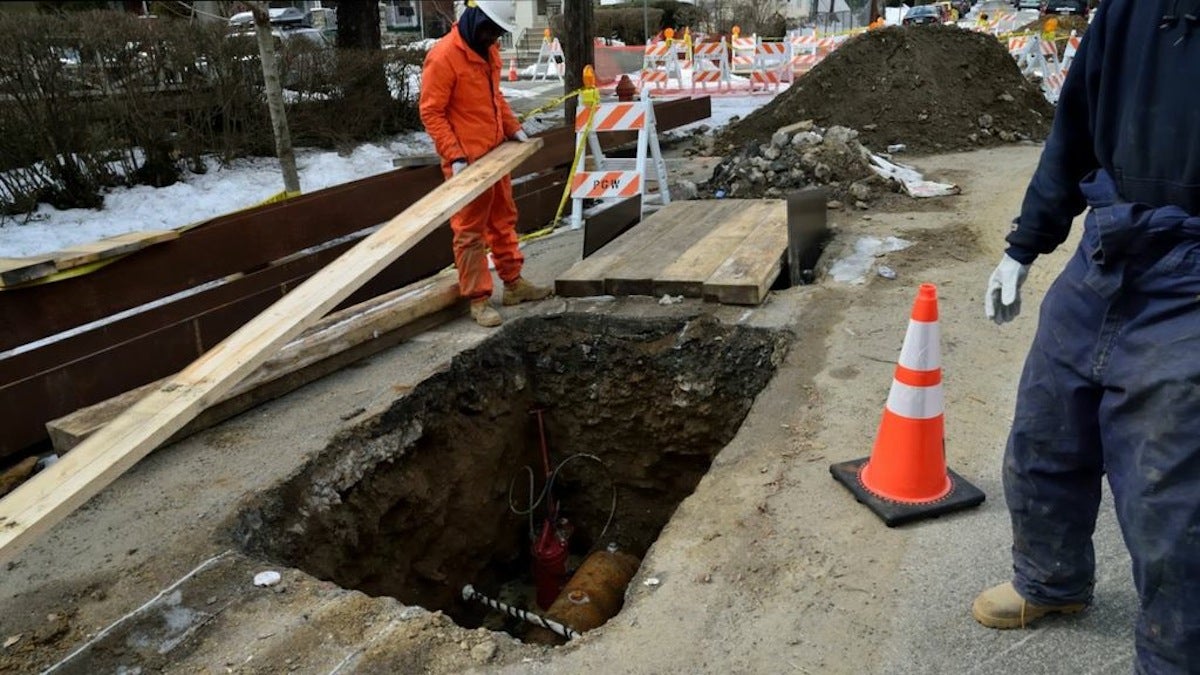When police confront veterans in crisis
Mental health advocates want to train police to help them negotiate contacts with veterans who are mentally ill.
As soldiers return to Pennsylvania, home from the war, mental health advocates say unrecognized mental illness sometimes fuels violence, inappropriate behavior and brushes with the law.
Listen:
Transcript:
From her couch in Downingtown, Chester County, 25-year-old Jennifer Crane balances her 6-month-old daughter Hailey on her lap at ease these days as she recalls how different her life was just two years ago.
Crane: I could not keep myself straight enough and healthy enough to sustain a job, to hold one for any period of time, even a couple of days.
Crane: I can’t speak for every solider, but for me, when you are in a combat environment, and you need to be focused on your job, and what you are doing, there. I turned myself off, I mean completely.
Home from Afghanistan, Crane spent time at Coatesville’s VA Medical Center where she got help for a drug abuse problem. But she says the VA’s inpatient program for post-traumatic stress disorder didn’t work for her. Dismissed from the program, she bounced between her boyfriend’s apartment and her car and turned back to drugs, this time, crack cocaine.

Eventually that life, and the police, caught up with her.
Crane: I pulled off of one of the streets in downtown Coatesville back onto the main highway, and within 10 seconds of me stopping from seeing a dealer they pulled me right over. Within five minutes there was seven different narcotics enforcement units surrounding my car.
That car stop brought Crane to a point that has lots of mental health advocates worried. What happens next when emotional problems combine with drug or alcohol abuse to bring a veteran face-to-face with the police?
Pennsylvania has the fourth-largest population of veterans in the country, and if national statistics hold, as many as 25 percent of them are returning with some kind of mental health problem.
Seasock: We have nightmares, flashbacks, restlessness, uncontrolled anger. Sometimes because we look odd or we look different, or we are stressing, are having that reaction, we are getting the attention of the police.
Dr. John Seasock is a psychologist and trauma specialist.

Pennsylvania advocates are meeting with police and courts officials looking for ways to boost the chances for a positive outcome, when police confront a veteran who’s mentally ill.
Stewart: No. 1 they can be highly reactive, and they are trained to kill. In crisis and acting out, they can potentially pose some very serious situations for both individuals, both the officer and the veteran.
Wendy Stewart coordinates the training for the Crisis Intervention Team. It’s a 40-hour course to help police respond more effectively – and Stewart says more compassionately. There are three Pennsylvania programs: Pittsburgh, Stewart’s program in the Laurel Highlands region and one in Philadelphia. The training includes a session with veterans who talk about what it’s like to be stopped by police when you are newly home from the war and struggling emotionally.
Stewart: They can come back here as highly aggressive drivers, and oftentimes they are stopped in traffic incidents. You know, while the aggressive driving may be very adaptive in war zones, you know, it causes a lot of problems when they return here at home.
During the training, police also discuss their procedures and the need for officer safety. In Northampton County, Police Chief Barry Pilla hopes to offer the crisis intervention training.
Pilla: It is so important for officers to be as perceptive and intuitive as they can as they approach a situation to try and glean as much information before it elevates to a case of combativeness.
But he has no idea if there’s been an uptick in contact between police and veterans in his county.
Pilla: That’s a difficult statistic unless you are actually arresting the person, you know, I could ask you, if I stop you: ‘Are you a vet?’ sometimes you do that, but in the normal course of business, I don’t know that we really do that.
Pilla, who’s a veteran, says what he’d really like to see is Veterans Affairs programs that effectively screen soldiers with mental health problems, and then provide help before they come in contact with police.
Jennifer Crane says her brush with the law was both the worst, and best, experience of her life. Embarrassed and humiliated, she got drug treatment and an opportunity to clean up her record.
One of the narcotics enforcement officers was a veteran as well, so he kind of felt for me a little bit, but he was just like, ‘It doesn’t matter, you still can’t break the law.’
WHYY is your source for fact-based, in-depth journalism and information. As a nonprofit organization, we rely on financial support from readers like you. Please give today.

